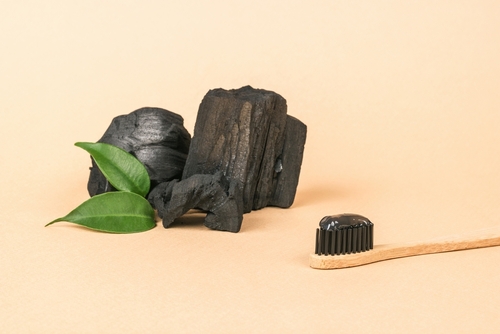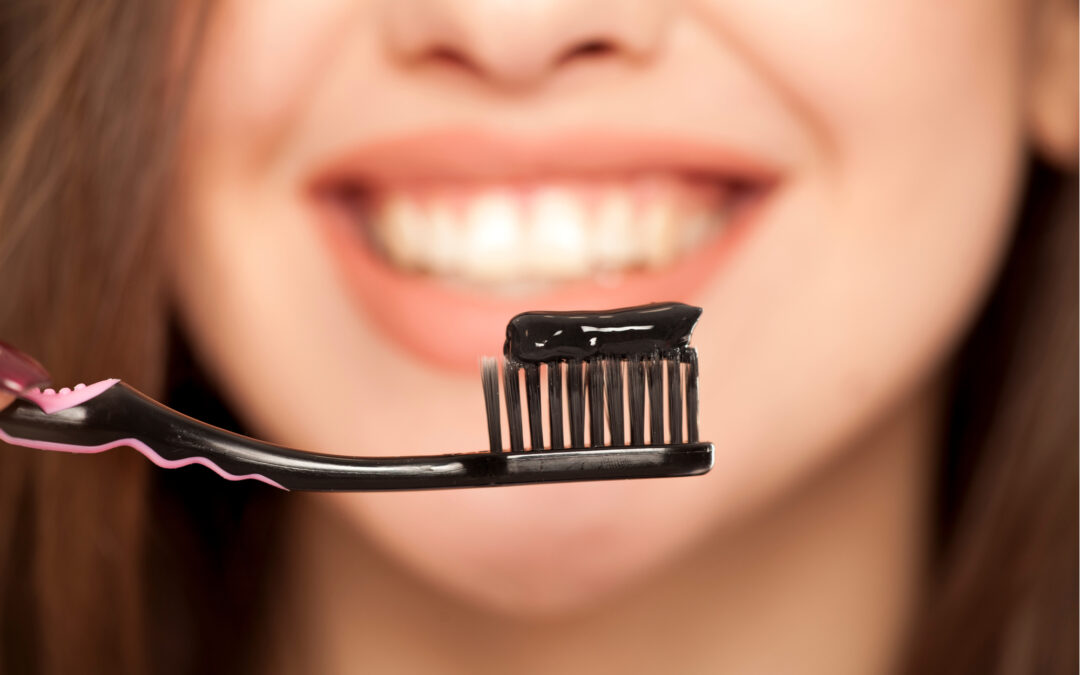
Is Charcoal Good for Your Teeth?
[vc_row][vc_column][vc_column_text]
You may have seen ads or social media posts claiming that charcoal in toothpaste and toothbrushes can help achieve a brighter and healthier smile. But is charcoal truly good for your teeth? Let’s take a close look at charcoal in dental products and separate fact from fiction.
Pros of Charcoal Dental Products
Potential Surface Stain Removal
Charcoal has adsorbent properties, which means it can bind to certain compounds, including surface stains on teeth. This can help remove superficial stains and provide a temporary improvement in tooth color.
Freshening Effects
Activated charcoal has a porous structure with a large surface area. This gives it a unique ability to draw in food particles and other harmful substances from the mouth, leading to fresher breath. Additionally, the grainy texture of charcoal toothpaste may provide a mild exfoliating effect, leaving your teeth feeling cleaner and smoother.
Cons of Charcoal Dental Products
Abrasive Cleaning
Charcoal dental products tend to be gritty and coarse. While a certain level of abrasiveness is necessary for effective cleaning, excessive abrasion can damage tooth enamel over time, leading to increased tooth sensitivity and potential enamel erosion.
Lack of Fluoride
Many charcoal toothpaste options do not contain fluoride, a vital component in preventing tooth decay. Fluoride strengthens tooth enamel and helps protect against cavities. Therefore, relying solely on charcoal dental products may leave your teeth more susceptible to decay and other problems.
Unproven Long-Term Effects
Despite claims of its benefits, the long-term effects of charcoal dental products remain uncertain. Limited scientific research exists to support the claims made by manufacturers, and the potential risks associated with prolonged and exclusive use of these products have not been thoroughly studied.
Potential Mess and Staining
Charcoal can be messy, leaving dark residue on the sink, toothbrush, and even your gums. Additionally, the black color of charcoal toothpaste may temporarily stain toothbrush bristles, and lodged charcoal particles can make them harder to clean.
Professional Guidance Is Key
While charcoal dental products may have some potential benefits, it’s important to remember that oral health decisions should be made with the guidance of dental professionals. Here are a couple of recommendations:
1. Consult Your Dentist.
Before incorporating charcoal dental products into your oral care routine, consult your dentist. They can evaluate your oral health, assess the need for teeth whitening, and provide personalized recommendations based on your unique circumstances.
2. Maintain a Comprehensive Oral Care Routine.
Remember that dental health extends beyond just teeth whitening. Brushing twice a day with fluoride toothpaste, flossing daily, and visiting your dentist regularly are crucial for maintaining optimal oral health and a beautiful smile.
Professional Teeth Whitening in Joliet
While charcoal dental products may offer some benefits, their potential risks and long-term effects must be considered. The best approach to oral care is a comprehensive one that includes professional advice, a balanced diet, regular dental check-ups, and a consistent oral hygiene routine.
At Smile League Dental, we prioritize your oral health and provide expert guidance for achieving a healthy, beautiful smile. We take pride in providing professional teeth whitening options that are safe, effective, and tailored to your specific needs. You can contact us at 815-782-6243.
[/vc_column_text][/vc_column][/vc_row]


Recent Comments